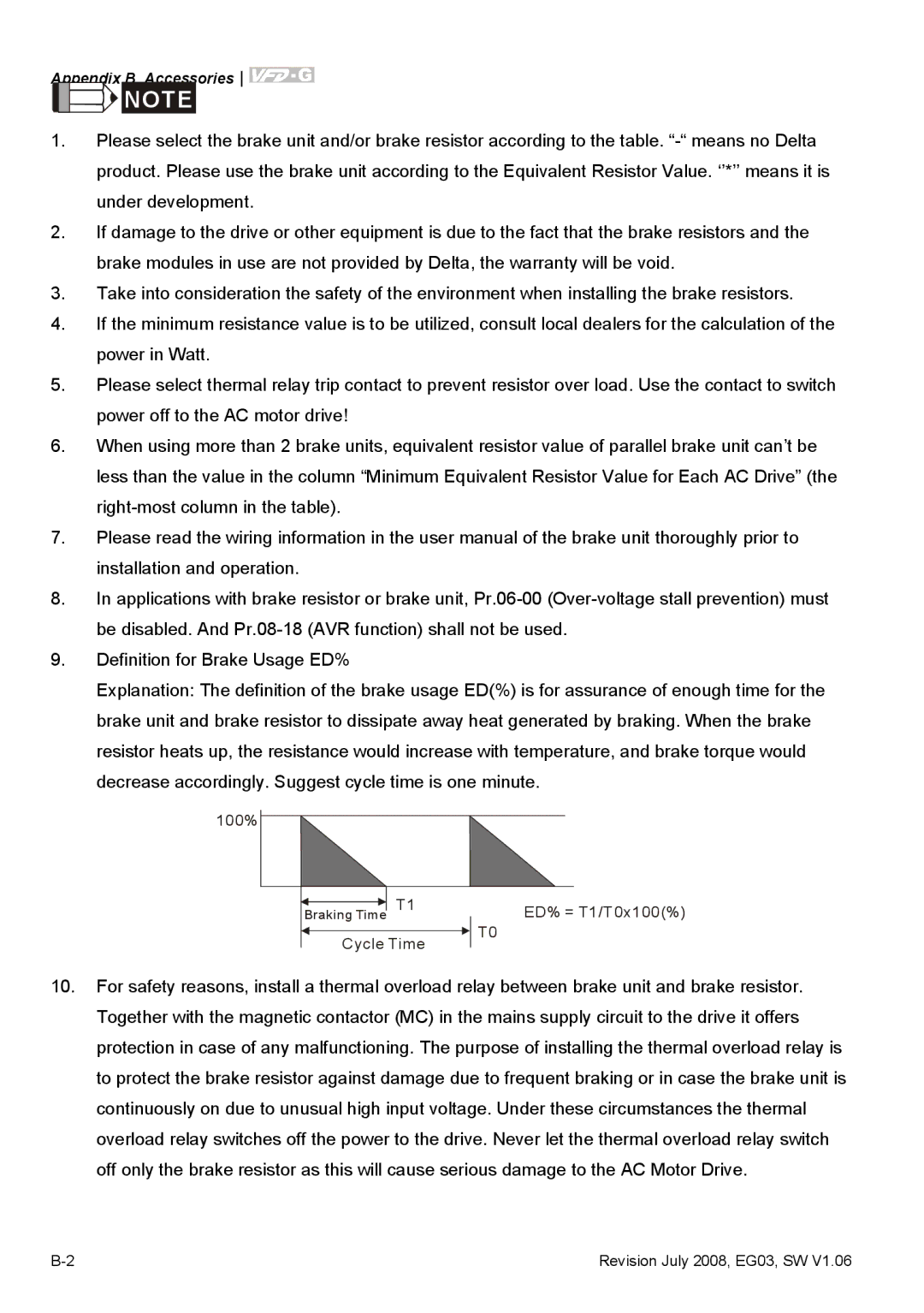
Appendix B Accessories
![]()
![]() NOTE
NOTE
1.Please select the brake unit and/or brake resistor according to the table.
2.If damage to the drive or other equipment is due to the fact that the brake resistors and the brake modules in use are not provided by Delta, the warranty will be void.
3.Take into consideration the safety of the environment when installing the brake resistors.
4.If the minimum resistance value is to be utilized, consult local dealers for the calculation of the power in Watt.
5.Please select thermal relay trip contact to prevent resistor over load. Use the contact to switch power off to the AC motor drive!
6.When using more than 2 brake units, equivalent resistor value of parallel brake unit can’t be less than the value in the column “Minimum Equivalent Resistor Value for Each AC Drive” (the
7.Please read the wiring information in the user manual of the brake unit thoroughly prior to installation and operation.
8.In applications with brake resistor or brake unit,
9.Definition for Brake Usage ED%
Explanation: The definition of the brake usage ED(%) is for assurance of enough time for the brake unit and brake resistor to dissipate away heat generated by braking. When the brake resistor heats up, the resistance would increase with temperature, and brake torque would decrease accordingly. Suggest cycle time is one minute.
100%
|
|
|
|
|
|
|
|
| |
|
|
|
|
| T1 |
| ED% = T1/T0x100(%) | ||
Braking Time |
| ||||||||
|
|
| |||||||
|
|
|
|
|
|
| T0 | ||
|
| Cycle Time | |||||||
|
|
|
|
| |||||
10.For safety reasons, install a thermal overload relay between brake unit and brake resistor. Together with the magnetic contactor (MC) in the mains supply circuit to the drive it offers protection in case of any malfunctioning. The purpose of installing the thermal overload relay is to protect the brake resistor against damage due to frequent braking or in case the brake unit is continuously on due to unusual high input voltage. Under these circumstances the thermal overload relay switches off the power to the drive. Never let the thermal overload relay switch off only the brake resistor as this will cause serious damage to the AC Motor Drive.
Revision July 2008, EG03, SW V1.06 |
